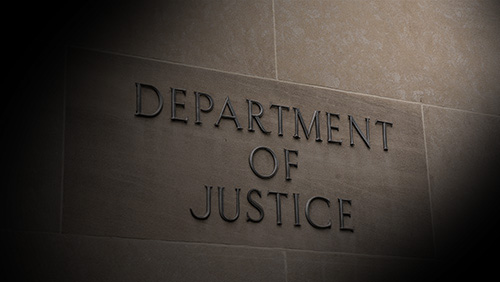As the debate, as well as the lawsuits, still rages regarding the US Department of Justice’s (DOJ) decision to change its stance on the Federal Wire Act, two states have taken a preemptive move to prevent the department from trying to come after them for their legal online gaming activities. Both Ohio and Nevada are rewriting their respective legislation to change how online gambling is worded in hopes that this could stave off any DOJ attack.
The DOJ had stated, almost nine years ago, that the Wire Act only applied to online sports gambling. As it related to the topic, the legislation prohibited any sports gambling activity that involved interstate transactions, such as a sportsbook in one state accepting bets from a gambler in another state. However, for reasons that are still not clear, the DOJ changed its opinion earlier this year to say that all forms of online gambling are illegal per the Wire Act.
Ohio has decided to not use the words “mobile” or “online” as it works on legislation that would allow online sports gambling. Instead, according to Representative Dave Greenspan, “The reason we went with that language, versus ‘mobile’ and ‘online,’ is, once again, ‘devices,’ ‘personal devices,’ and ‘software’ are broad terms. We don’t know 5-10 years from now what the technology may be, what the delivery system of the product may look like. So we want to provide a broad context by using those phrases: devices, personal devices, and software. It is a catch-all so anything new that becomes available falls under this definition. If we use the more narrow definition of mobile/online, a device might not fall under that definition. I wanted to make you aware that the Wire Act is a concern as it relates to interstate gambling, interstate sports wagering. The lottery commission, as they currently operate, is on a closed-loop system, effectively an intranet. There are ways that we can offer a platform in Ohio that would meet the requirements of the Wire Act.”
Nevada is working on legislation that would regulate mobile sports gambling as if it were a slot machine. This way, according to lawmakers, it won’t be considered online gambling. The chair of the Nevada Gaming Control Board, Sandra Douglass Morgan, explains, “This bill no longer considers mobile gaming as a unique and separate gaming category. It simply adds mobile gaming to the definition of a gaming device, which would regulate mobile gaming just as any other game devices in the state. There are currently five companies with a mobile gaming license, and this bill would grandfather [in] those companies.”
